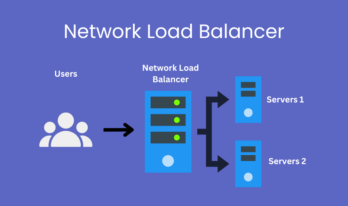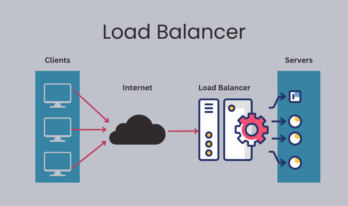Jenkins is a continuous integration tool that helps the developers to create the new code as well as test it simultaneously.
On the other hand, Docker helps the developers to overcome the challenge of deploying the newly generated applications that work fine on one system but might face an issue in getting executed on other systems.
Docker is a platform designed for deploying or run applications using containers.
Both Jenkins and Docker act as saviours for the development teams. Where Jenkins helps in continuous integrations of changes for projects, Docker makes sure that applications run quite smoothly on any platform, irrespective of the platform and frameworks it was created on.
Jenkins vs. Docker: Which is More Popular?

As it is clear from the Google Trends data of the past five years, Docker is quite ahead in terms of user preferences.
One of the major issues after creating the applications is its accurate execution on another platform, server, or machine.
Docker helps in overcoming this problem by running applications with the help of containers which act in isolated environments.
Detailed Difference Between Jenkins and Docker
In order to work on Jenkins, pipelines are to be created.
These pipelines consist of all the steps that Jenkins is going to perform for the task assigned.
Working of Jenkins can be well explained in below-mentioned steps:
- Developers do the changes to the source code and submit it to the repository.
- Jenkins acts as a continuous integration server, wherein it checks the repository from time-to-time and detects any newly available code and tests against it.
- The build server is hereafter used wherein the code is converted into an executable file.
- A notification is also sent in case of failure related to the build server.
- Hereafter the file is sent to the test server for testing.
- After the steps mentioned above, if no error is found the file it is sent to production servers for further processing.
Let’s explain the working of Docker now from its components
Client
Docker’s functional architecture is based on a client-server architecture.
Docker Daemon is solely responsible for actions that are related to containers.
Docker Daemon receives the commands from the Docker client.
Images
Images are the basic blocks in the Docker, and containers are copies of these images. Images are kept in Docker in a layered manner.
Every change or addition in images is added as a layer on top of it.
Docker Registry
Docker registry helps in building and sharing of images among peers or teams.
If the Docker registry is public, all of the images are accessible by Docker hub users.
If it is private, then images can be built locally and can be pushed to Docker hub.
Docker Container
It is considered as the most essential environment in Docker.
All the required applications, if configured with the required configuration in Docker, can help in bringing the best out of it.
More containers can be added to form tiered application architecture to satisfy the business requirements.
They can be made functional and dysfunctional together.
However, it has to be made sure if termination of a container happens without commitment, every change made so far will be erased.
Also Read: Docker vs. Virtual Machine: Understanding the Difference
Below mentioned are some of the key features of Jenkins:
- Being an automated server, it can be used as a CI server.
- It can be easily installed as its self-sufficient Java program it is ready to be used with packages for Windows, Unix-like operating systems.
- Jenkins is extensible because of the plugin architecture.
- Because of the hundreds of plugins available, it gets easily integrated with every tool.
Some of the key features of Docker are as under:
- Being light weighted Docker is easily scalable.
- Productivity can be increased by easing up the technical configuration of the application and executing it in an isolated environment.
- With the help of the Routing Mesh feature, it helps to route the incoming requests to available nodes for an active container.
Below mentioned are some of the benefits of Jenkins:
- Jenkins is quite suitable for start-ups as it is completely open-source.
- It can be modified as per requirement.
- Plugins can be created if one is not available.
- It is very adaptable as it allows deploying and automating in different parts with the help of its huge plugin system.
- It is easy to install.
- Once configured, it can pull codes from GitHub, BitBucket, whenever a commit is made.
Some of the benefits of Docker are as below:
- Easily portable, as after testing, the containerized applications can be deployed to other systems where Docker is running.
- It is secured as it gives us complete control over the traffic flow of isolated containers.
- It is light, as Docker images are typically small and therefore deployed rapidly, saving a lot of time.
- Developers, with the help of Docker, can use multiple versions of the same programming languages.
- Promotes standardization for businesses through its consistency in deployment processes and release cycles.
- It is entirely scalable as new containers can be created if the application demands it.
Below mentioned are some of the disadvantages of Jenkins:
- Jenkins is unable to follow the Salesforce metadata type.
- It doesn’t provide visibility into end-to-end metrics.
- Customers often face issues related to tracking of changes made by the developer teams.
- Since the majority of deployments done by Jenkins happens via single user, tracking deployments becomes difficult.
- To minimize system failures, sandboxes are used by a majority of organizations. Jenkins does not provide any supportive frameworks to manage these sandboxes.
Some of the cons of Docker have been explained below:
- Data storage is an issue as data inside a container can get erased if the container shuts down.
- Speed issues happen as containers consume more resources than virtual machines. If a user is expecting 100 percent bare-metal performance, they need to use bare metals, not containers.
- Docker is platform dependent as it uses virtual machines to run on non-Linux platforms.
- Data collection in real-time is more challenging in Docker as stats command will give you information related to containers, but the same might not help in advanced stages.
- Docker is complex sometimes because of the additional layers affecting not only the deployment but also the build and the development.

Conclusion
Both Jenkins and Docker add a number of advantages for the developers. Where Jenkins helps in quick deliverance of application through its continuous integration model, Docker helps to install the applications more efficiently devoid of any errors.
Also Read: Understanding the Advantages and Disadvantages of SaaS




